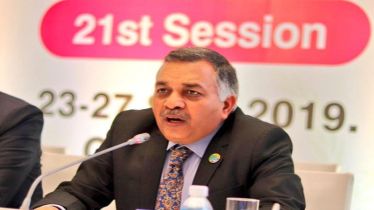The food industry is complex as it comprises many small- to large-scale businesses that are related to food item production, processing, supply, and distribution. In the last 30 years, India has transitioned from being a food-deficit nation to a self-sufficient food-producing country. However, food security continues to be a major concern in India.
A recent report by the Food and Agriculture Organization has revealed that over 74 percent Indians can’t afford a healthy diet. The report also revealed that the diet of an average Indian lacks essential nutritional food articles like fruits, vegetables, legumes, etc.
In a recent interaction with Financial Express.com, Pawan Agarwal, former CEO of the Food Safety and Standards Authority of India (FSSAI) said that India’s food market is largely informal and consequently ensuring food safety and hygiene becomes very challenging.
“Unlike the West, where a lot of food is grown, processed, or distributed in the organized sector, India has a large informal market. In this informal market, ensuring food safety and hygiene becomes very challenging. Therefore, we have to adopt a very different approach. In India, we are trying to adopt that approach, and we have had some success, but it has not fully addressed the issue of food safety, particularly hygiene issues, and instances of adulteration in the foreign market,” Agarwal said.
He is a 1985 batch Indian Administrative Service (IAS) officer of the West Bengal cadre. He also served as secretary in the Department of consumer affairs under the ministry of Consumer Affairs, food and Public Distribution in 2020. Currently, he is the Founder and CEO of Food Future Foundation (India).
He also emphasised on the need of consumer education and awareness.
“In case of adulteration, consumers can take key steps, such as identifying adulteration, protesting, figuring out the identity, and choosing not to buy from such sources. These challenges can be addressed. However, as far as people making healthy choices are concerned, for most people, taste comes first in food choices. Many may order tasty but unhealthy food, such as sugary or fatty items. The bigger issue is sugar…When they bring healthy food to the market, it may not be so tasty, and if it isn’t, their market share decreases because if the market share decreases,” he explained.
He also pointed out that there is a need to create an environment where healthier options are available.
“We have to create incentives for different actors to create an environment where healthier options are available; they will do marketing for healthier foods,” he added.
Agarwal also emphasised on the need to inculcate a food-based education programme in schools.
“…self-awareness about yourself and building your food habits, which are good for you, and which work for you is important. No doctor or no dietitian can help you develop your food habits. You have to figure out what works for you. And it starts with food literacy and self-awareness,” he added.
